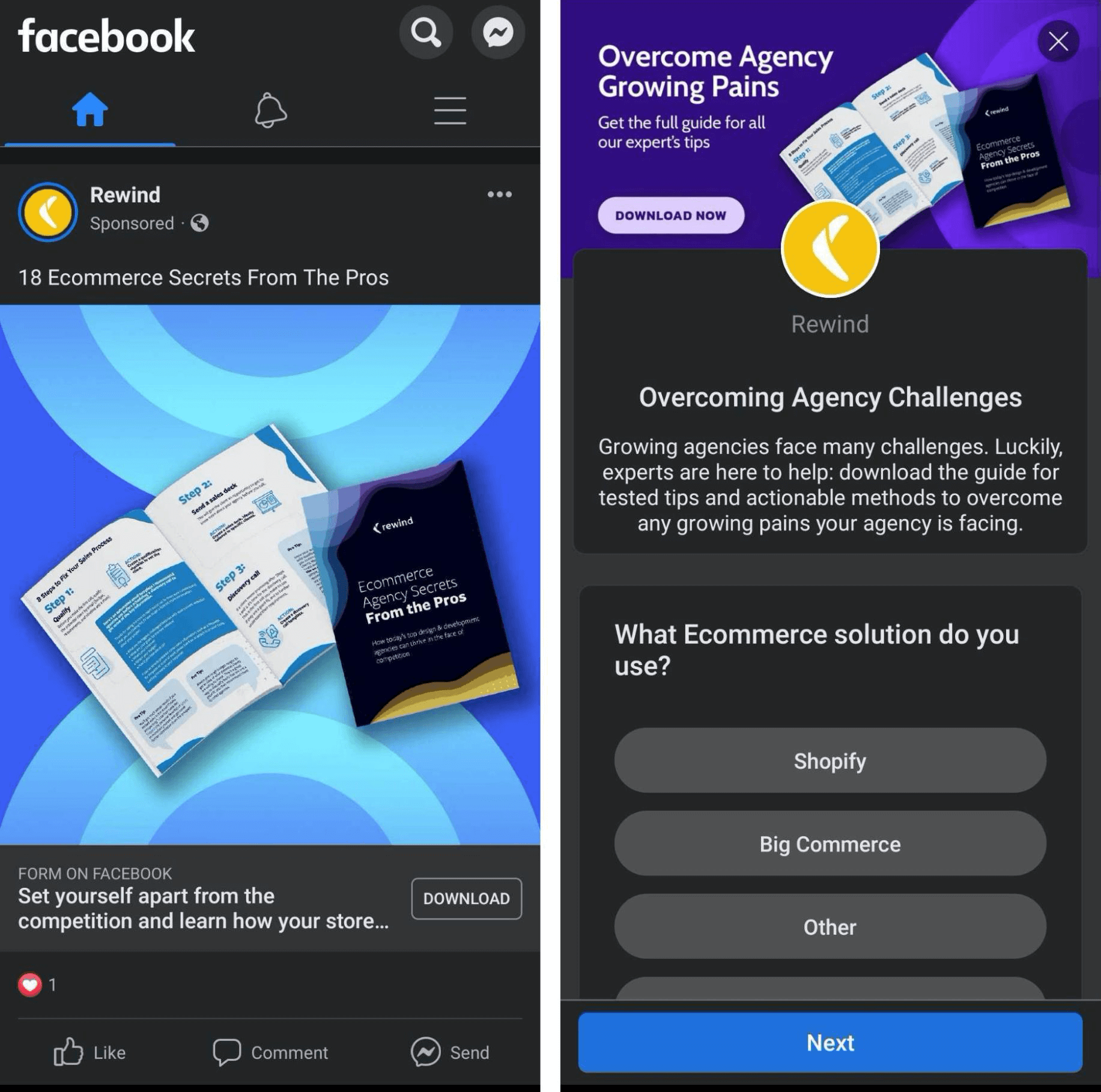Lead generation qualification is the process of determining the readiness and suitability of a lead for conversion. It involves assessing the lead’s interest, fit, and ability to make a purchase or take the desired action.
Effective lead generation is crucial for any business looking to expand its customer base and boost sales. However, not all leads are created equal, and not all of them are ready to become paying customers. This is where lead generation qualification comes into play.
By qualifying leads, businesses can identify the ones that are most likely to convert and focus their efforts on nurturing and closing those opportunities. Lead qualification involves evaluating the lead’s level of interest, their fit with the company’s products or services, and their ability and willingness to make a purchase. This plays a vital role in maximizing the efficiency and effectiveness of sales and marketing efforts, ultimately driving revenue growth. We will explore the importance of lead generation qualification and discuss various strategies and techniques to successfully qualify leads.
Understanding Lead Generation Qualification
Lead generation qualification is a crucial aspect of any successful marketing strategy. It involves the process of determining the quality and suitability of leads before they are passed on to the sales team. By qualifying leads, businesses can focus their resources and efforts on prospects that are more likely to convert into paying customers. So, what exactly is lead generation qualification and why is it important? Let’s explore these questions in more detail.
What Is Lead Generation Qualification?
Lead generation qualification refers to the process of evaluating and assessing leads to determine their readiness and likelihood to make a purchase. It involves gathering information about leads and assessing their fit with your product or service, their level of interest, and their potential to become a customer.
Through lead qualification, you can identify leads that are a good match for your business and separate them from those that are less likely to convert. This allows you to prioritize your resources and focus on leads that have a higher chance of becoming valuable customers.
Why Is Lead Generation Qualification Important?
Lead generation qualification is important for several reasons:
- Efficiency: By qualifying leads, you can streamline your sales process and avoid wasting time and resources on leads that are unlikely to convert. This ensures that your sales team can focus their efforts on leads with a higher chance of conversion, increasing efficiency and productivity.
- Increased conversion rates: When you qualify leads, you can tailor your messaging and approach to meet their specific needs and pain points. This personalized approach increases the chances of converting leads into customers, leading to higher conversion rates.
- Improved customer targeting: Qualifying leads allows you to understand your ideal customer profile better. By identifying the common characteristics and traits of your most valuable customers, you can target similar prospects more effectively and improve overall lead quality.
- Cost-effectiveness: By focusing on qualified leads, you can optimize your marketing spend and resources. Instead of casting a wide net and targeting a broad audience, lead generation qualification helps you allocate your budget and efforts towards prospects with a higher likelihood of conversion.
In conclusion, lead generation qualification is a vital component of any successful marketing strategy. By carefully evaluating and qualifying leads, businesses can increase efficiency, conversion rates, and customer targeting while optimizing their marketing spend. This process ensures that your sales team is spending their time and effort on leads that are most likely to become valuable customers, resulting in better overall sales performance and business growth.

Credit: waypointmc.com
The Key Elements Of Lead Generation Qualification
Lead generation qualification is a crucial step in the sales process that helps businesses identify and prioritize potential customers. By qualifying leads, businesses can more effectively allocate their time and resources, focusing on those prospects most likely to convert into paying customers. In this blog post, we will explore the key elements of lead generation qualification and how they contribute to a successful lead generation strategy.
Identifying The Target Audience
One of the initial steps in lead generation qualification is identifying the target audience. Understanding who your ideal customers are is essential in tailoring your marketing efforts towards them. By conducting market research and analyzing your existing customer base, you can determine the demographics, interests, and pain points of your target audience.
This information enables you to create highly targeted and personalized marketing campaigns that resonate with your ideal customers. By appealing directly to their needs and preferences, you increase the likelihood of attracting qualified leads who are more likely to convert into customers.
Creating An Effective Lead Magnet
A lead magnet is a valuable piece of content or an offer that is provided to potential leads in exchange for their contact information. It is an effective way to attract qualified leads and build your email list. To create an effective lead magnet, it’s important to offer something that aligns with your audience’s needs and provides genuine value.
Some examples of lead magnets include e-books, whitepapers, case studies, and free trial offers. By offering a solution to a problem or addressing a pain point for your target audience, you can entice them to provide their contact information and engage further with your brand.
Implementing Lead Scoring
Lead scoring is a method of assigning values to leads based on their behavior and actions. It allows businesses to prioritize leads based on their level of interest and engagement. By assigning scores to actions such as website visits, email opens, and form submissions, businesses can determine which leads are most likely to convert into customers.
This information enables the sales team to focus their efforts on leads that have demonstrated higher levels of engagement, resulting in a more efficient and effective sales process. Implementing lead scoring helps businesses maximize their resources and ensures that they are investing their time in leads with the highest potential for conversion.
Segmenting Leads For Personalized Communication
Segmenting leads is the process of dividing your leads into distinct groups based on specific criteria. This allows you to create targeted and personalized communication strategies that are more relevant to each group. By tailoring your messaging and content based on the needs and interests of each segment, you can increase engagement and conversion rates.
Segmentation can be based on demographics, behavior, purchase history, or any other relevant criteria. For example, you could segment leads based on their industry, job title, or geographic location. This allows you to deliver highly targeted and customized messaging that resonates with each segment, maximizing the chances of conversion.
In conclusion, lead generation qualification involves several key elements that contribute to a successful lead generation strategy. By identifying the target audience, creating an effective lead magnet, implementing lead scoring, and segmenting leads for personalized communication, businesses can attract and convert qualified leads, ultimately driving revenue and growth.
Best Practices For Lead Generation Qualification
Discover the best strategies for qualifying leads in lead generation. Learn techniques that can help you identify and prioritize high-quality leads, ensuring better conversion rates and increased sales opportunities for your business.
Conducting Thorough Research
Thorough research is essential for effective lead generation qualification. It involves gathering information about your target audience, understanding their needs and preferences, and identifying the most relevant prospects. Start by examining your existing customer base and conducting market analysis to identify key demographics and buying behaviors.
- Segment your target audience based on demographics, interests, and purchasing patterns.
- Use online tools and resources to gather information about potential leads.
- Study your competitors’ strategies to discover new tactics and opportunities.
Leveraging Technology And Automation
Technology and automation play a crucial role in streamlining the lead generation qualification process. By using the right tools, you can save time and effort while ensuring accuracy and efficiency. Here are some best practices to follow:
- Invest in a customer relationship management (CRM) system to manage and track leads effectively.
- Use lead scoring algorithms to prioritize and qualify prospects based on their interactions with your brand.
- Implement marketing automation software to nurture leads and deliver personalized content at the right time.
Developing A Lead Nurturing Strategy
Lead nurturing is a continuous process that involves building relationships with potential customers to guide them through the sales funnel. Here’s how to develop an effective lead nurturing strategy:
- Create relevant and valuable content that addresses your target audience’s pain points and provides solutions.
- Segment your leads based on their level of engagement and personalize your communication accordingly.
- Automatically send targeted emails, educational resources, and promotional offers to nurture your leads.
Tracking And Analyzing Lead Qualification Metrics
Tracking and analyzing lead qualification metrics help you understand the effectiveness of your lead generation strategies and make data-driven decisions. Consider the following practices:
- Monitor metrics like conversion rates, lead source, and lead quality to evaluate the success of your lead generation campaigns.
- Utilize A/B testing to test different approaches and optimize your lead qualification processes.
- Regularly analyze and refine your lead qualification criteria to ensure it aligns with your business goals and target audience.

Credit: www.amazon.com
Common Mistakes To Avoid In Lead Generation Qualification
Lead generation qualification plays a crucial role in attracting potential customers and nurturing them into valuable leads. However, it is not uncommon for businesses to make mistakes in this process that can hinder their success. In this article, we will explore some common mistakes to avoid in lead generation qualification, ensuring you optimize your efforts and increase your conversion rates.
Neglecting Lead Qualification Criteria
One of the biggest mistakes businesses make in lead generation qualification is neglecting to establish clear and specific lead qualification criteria. Without predefined criteria, your sales and marketing teams may waste time and energy on leads that are unlikely to convert into customers. By identifying key factors such as demographic information, budget, and purchasing intent, you can focus your efforts on leads that have a higher likelihood of conversion. This targeted approach will not only save time but also increase the effectiveness of your lead generation strategy.
Overlooking Lead Nurturing
In the pursuit of acquiring new leads, many businesses overlook the importance of lead nurturing. Lead nurturing involves building relationships with potential customers and guiding them through the buyer’s journey. By providing valuable content and personalized interactions, you can establish trust and credibility with your leads, increasing their chances of conversion. Overlooking lead nurturing can result in missed opportunities and lost revenue. Therefore, it is essential to incorporate a lead nurturing strategy into your lead generation process.
Relying Solely On Automation
While automation can greatly streamline your lead generation process, relying solely on it can be a costly mistake. While automation tools can help with tasks such as data collection and email marketing, they cannot replace human interaction and personalization. Building genuine connections with your leads requires a human touch. By combining automation with manual outreach and personalized communication, you can create a more engaging and effective lead generation strategy.
Failing To Align Sales And Marketing Teams
Another critical mistake to avoid is failing to align your sales and marketing teams. For effective lead generation, it is crucial that both teams work together towards a common goal. Lack of coordination and communication between these departments can result in misaligned strategies, wasted efforts, and missed opportunities. By fostering collaboration and ensuring a seamless flow of information between sales and marketing, you can create a cohesive lead generation process that maximizes efficiency and increases conversions.
Avoiding these common mistakes in lead generation qualification will set you on the path to success. By establishing clear lead qualification criteria, prioritizing lead nurturing, balancing automation with human interaction, and aligning your sales and marketing teams, you can optimize your lead generation efforts and achieve a higher conversion rate. Take the necessary steps to refine your lead generation strategy and watch your business thrive.

Credit: www.socialmediaexaminer.com
Frequently Asked Questions On Lead Generation Qualification
What Are The Requirements For Lead Generation?
To generate leads, you need to follow these requirements: keep sentences short (20 words max), write in an SEO-friendly and unique manner, avoid passive voice and certain phrases, and ensure your content is easy to understand. Remember to write like a human and stay within 50 words.
What Are The Criteria For Lead Qualification?
Lead qualification criteria include factors such as demographic fit, engagement level, buying intent, budget, and timeline. These criteria help determine if a lead is suitable for further sales efforts. By assessing these aspects, businesses can prioritize leads and focus on those with the highest likelihood of converting into customers.
What Are The 5 Requirements For A Lead To Be Considered A Qualified Prospect?
To qualify as a lead prospect, the following five requirements must be met: precise adherence to all guidelines, utilization of brief sentences with a maximal limit of 20 words, ensuring SEO-friendly, human-like, unique, and plagiarism-free content, delivering information in an understandable manner through active voice sentences, and passing AI writing detection to maintain human-like writing.
The answer is written within 50 words.
What Is The Qualification Of Leads?
Leads are qualified based on their level of interest and alignment with the company’s target audience. This is determined through factors such as demographics, behavior, and engagement with the company’s content and offerings.
Conclusion
Lead generation qualification plays a crucial role in the success of any business. By effectively identifying and qualifying leads, businesses can streamline their sales process and increase their conversion rates. With the right approach and strategies in place, businesses can ensure that they are targeting the right prospects and maximizing their revenue potential.
By keeping these key principles in mind, businesses can make a significant impact on their bottom line and drive sustainable growth. So, start implementing lead generation qualification tactics today to stay ahead of the competition.




